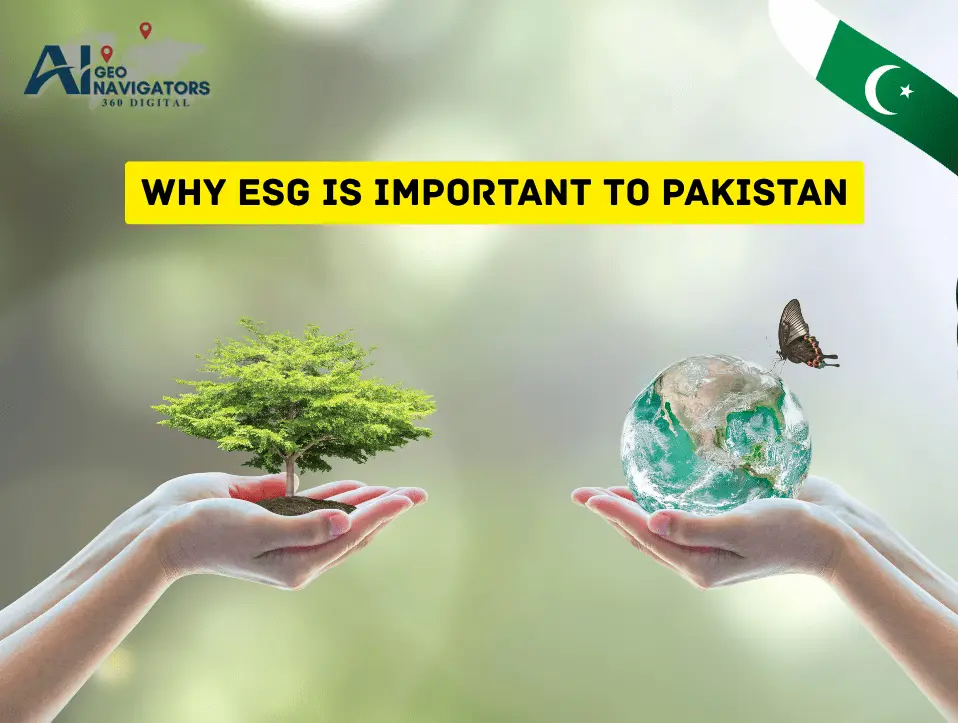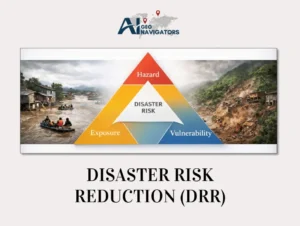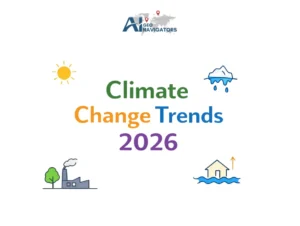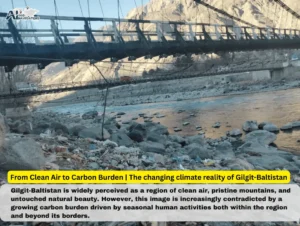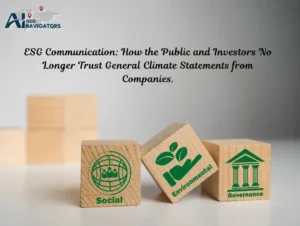Environmental, Social, and Governance (ESG) principles have become a global standard for businesses, governments, and organizations seeking to balance profitability with sustainability and social responsibility.
While ESG has gained traction in developed markets, its importance in countries like Pakistan cannot be overstated. With challenges such as climate change, governance issues, social inequality, and economic instability, ESG offers a structured framework to guide Pakistan toward a sustainable and resilient future.
This blog explores why ESG is crucial for Pakistan, covering environmental, social, and governance dimensions, their impact on the country’s economy, society, and global standing, as well as the opportunities ESG integration can unlock.
Table of Contents
ToggleUnderstanding ESG in the Pakistani Context
ESG refers to three interconnected pillars:
- Environmental: How organizations and governments manage natural resources, reduce carbon emissions, and mitigate climate risks.
- Social: How policies and practices address labor rights, diversity, inclusion, education, and community development.
- Governance: How institutions ensure accountability, transparency, ethical decision-making, and regulatory compliance.
In Pakistan, ESG is still in its nascent stage, but growing rapidly due to investor demands, global trade requirements, and domestic environmental and social pressures.
Environmental Importance of ESG in Pakistan
Climate Change Vulnerability
Pakistan ranks among the top 10 most climate-vulnerable countries in the world, facing rising temperatures, unpredictable rainfall, severe flooding, and droughts. Events like the 2022 floods displaced millions, destroyed infrastructure, and caused billions of dollars in damages.
- ESG-driven strategies can help businesses and governments invest in climate adaptation, disaster preparedness, and sustainable resource management.
Energy Transition and Sustainability
Pakistan is heavily reliant on imported fossil fuels, straining its economy and increasing emissions. ESG emphasizes:
- Renewable energy investments (solar, wind, hydropower).
- Energy efficiency measures in industries and urban planning.
- Green financing to accelerate clean energy adoption.
By adopting ESG, Pakistan can move toward energy independence and carbon reduction.
Natural Resource Management
Deforestation, water scarcity, and air pollution remain pressing issues. ESG frameworks encourage:
- Corporate responsibility for sustainable forestry and agriculture.
- Efficient water management systems in agriculture and industry.
- Pollution reduction through stricter environmental standards.
This ensures long-term ecological balance and resilience for communities.
Social Importance of ESG in Pakistan
Employment and Labor Rights
Pakistan has a large labor force but struggles with informal employment, unsafe working conditions, and gender disparities. ESG emphasizes:
- Fair labor practices, occupational safety, and equitable wages.
- Gender inclusivity and opportunities for marginalized communities.
- Skill development programs aligned with global trends like digitalization and green jobs.
This leads to a healthier, more productive workforce and boosts social cohesion.
Education and Health
Social investment in education and healthcare directly contributes to long-term growth. ESG-driven initiatives encourage companies to:
- Support community education programs.
- Invest in healthcare facilities, especially in underserved rural areas.
- Promote corporate social responsibility (CSR) aligned with national development goals.
Reducing Inequality
Pakistan struggles with income inequality, rural-urban divides, and gender gaps. ESG fosters social equity by:
- Encouraging inclusive hiring practices.
- Supporting community development projects.
- Bridging gaps through technology-enabled social solutions.
Social sustainability under ESG helps create a fairer, more inclusive society.
Governance Importance of ESG in Pakistan
Transparency and Accountability
Pakistan faces governance challenges such as corruption, weak institutions, and lack of accountability. ESG frameworks promote:
- Corporate transparency through ESG disclosures and reporting.
- Stronger compliance mechanisms aligned with international standards.
- Anti-corruption measures to restore investor and public trust.
Attracting Foreign Investment
Investors worldwide now look at ESG compliance before funding businesses. For Pakistan, this means:
- Improved access to green bonds and ESG-linked financing.
- Attracting multinational corporations seeking responsible supply chains.
- Enhancing Pakistan’s global image as a responsible investment destination.
Strengthening Institutions
ESG promotes governance reforms, digitalization of systems, and stronger legal frameworks. This ensures long-term stability and better service delivery to citizens.
ESG and Economic Growth in Pakistan
Access to Global Markets
Global trade increasingly requires ESG compliance. European Union (EU) and North American markets prefer suppliers with transparent ESG practices. For Pakistan’s textile and manufacturing exports, ESG adoption is critical to remain competitive.
Unlocking Green Finance
International lenders like the World Bank, Asian Development Bank (ADB), and IMF are increasingly tying funding to sustainability. ESG integration can help Pakistan:
- Access climate funds.
- Reduce financing costs through sustainability-linked loans.
- Support infrastructure and renewable projects.
Innovation and Technology
Adopting ESG encourages innovation in green technologies, sustainable agriculture, and digital solutions. This creates opportunities for entrepreneurship and job creation in emerging industries.
Pakistan ESG Challenges
The global business landscape is undergoing a rapid transformation, with Environmental, Social, and Governance (ESG) principles becoming the benchmark for sustainable growth, responsible investment, and corporate accountability. For countries like Pakistan, where socio-economic development is intertwined with environmental fragility and governance concerns, ESG adoption is not only important but essential.
However, despite the increasing recognition of ESG, Pakistan faces significant challenges in integrating these practices across industries, policymaking, and institutions. These hurdles stem from systemic issues such as lack of awareness, weak governance structures, and economic pressures.
1. Lack of Awareness and Understanding of ESG
One of the foremost challenges in Pakistan is the limited awareness of ESG principles among businesses, policymakers, and even civil society. While ESG has become a mainstream concept in developed markets, in Pakistan it is still perceived by many as an optional CSR activity rather than a core business requirement.
- Corporate Misconceptions: Many companies believe ESG is limited to philanthropy, ignoring its role in risk management, supply chain resilience, and investor trust.
- Knowledge Gaps: Boardrooms and decision-makers often lack the technical expertise to integrate ESG into business strategies.
- Limited Exposure: Small and medium-sized enterprises (SMEs), which form the backbone of Pakistan’s economy, rarely have exposure to global ESG reporting frameworks.
This lack of awareness means ESG is not prioritized, slowing down Pakistan’s progress compared to regional competitors like India, which has stronger ESG adoption.
2. Weak ESG Reporting and Data Infrastructure
Globally, ESG success is driven by data transparency and reporting frameworks. In Pakistan, the absence of standardized ESG reporting systems poses a major barrier.
- No National ESG Guidelines: Unlike many countries that have introduced mandatory ESG disclosures, Pakistan has yet to establish clear reporting regulations.
- Inconsistent Corporate Disclosures: While some large companies publish sustainability reports, most do not follow internationally recognized frameworks such as GRI, SASB, or TCFD.
- Data Reliability Issues: Even when ESG data is reported, its accuracy and reliability remain questionable due to poor monitoring systems.
Without standardized reporting, Pakistan risks being excluded from global supply chains where ESG compliance is a precondition.
3. Economic Pressures and Short-Term Thinking
Pakistan’s economy is under constant pressure from fiscal deficits, debt repayments, and inflation. For many businesses, survival takes precedence over sustainability.
- High Cost of ESG Integration: Transitioning to renewable energy, reducing carbon footprints, and improving labor conditions require financial investments that many firms cannot afford.
- Short-Term Profit Motive: Business leaders often prioritize quarterly earnings over long-term ESG strategies.
- Access to Finance: Green financing and ESG-linked loans remain limited in Pakistan, restricting opportunities for businesses to adopt sustainable models.
This economic reality creates a mindset where ESG is seen as a “luxury” rather than a “necessity.”
4. Governance and Institutional Challenges
Governance is the backbone of ESG, but Pakistan faces systemic governance challenges that weaken ESG adoption.
- Corruption and Lack of Transparency: Weak enforcement of regulations reduces investor trust in ESG claims.
- Regulatory Gaps: There is no central authority mandating ESG compliance, leaving businesses with fragmented or voluntary standards.
- Policy Inconsistency: Frequent political instability disrupts long-term sustainability policies.
Without strong governance, ESG frameworks cannot gain legitimacy or scale across industries.
5. Environmental Challenges Specific to Pakistan
Pakistan is one of the most climate-vulnerable countries in the world, but environmental governance remains weak.
- Climate Disasters: Repeated floods, droughts, and heatwaves highlight the urgency of ESG adoption, yet adaptation measures are slow.
- Water Scarcity: Mismanagement of water resources and lack of conservation policies worsen Pakistan’s water crisis.
- Pollution and Deforestation: Urban air quality is among the worst globally, and deforestation continues at alarming rates.
These environmental realities demand immediate ESG integration, but weak infrastructure and inadequate investments hinder progress.
6. Social Barriers to ESG in Pakistan
The social pillar of ESG is equally critical, yet Pakistan struggles with systemic social challenges that make compliance difficult.
- Labor Rights Issues: Informal labor markets, unsafe working conditions, and lack of worker representation persist in many industries.
- Gender Inequality: Women’s labor force participation remains below 25%, far lower than global averages.
- Education and Skills Gap: Limited access to quality education and technical training makes it harder to build an ESG-ready workforce.
Without addressing these social inequalities, Pakistan risks widening the gap between ESG goals and ground realities.
Conclusion
ESG is not just a corporate buzzword for Pakistan, it is a necessity. The country climate vulnerability, governance challenges, and social inequalities demand a sustainable and responsible approach to development. By integrating ESG principles into its economic, social, and governance systems, Pakistan can:
- Build resilience against climate change.
- Promote inclusive and fair development.
- Strengthen its global economic competitiveness.
Ultimately, ESG provides Pakistan with a roadmap for long-term sustainability, ensuring that growth today does not compromise the needs of future generations.

